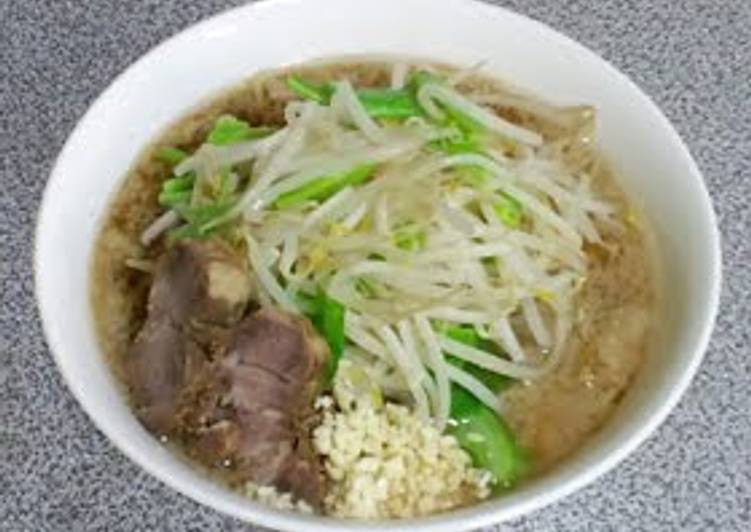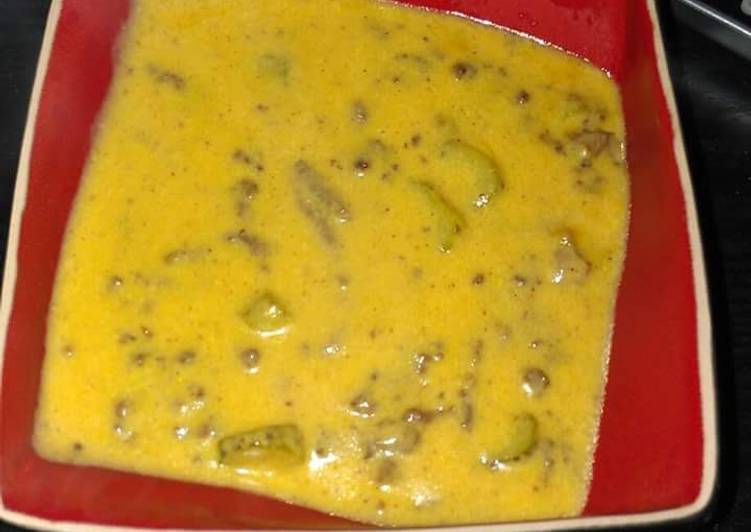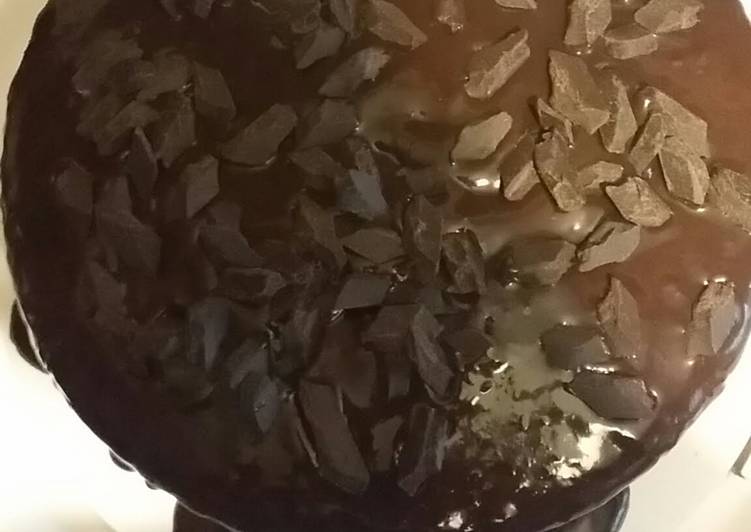
Hello everybody, it’s me again, Dan, welcome to my recipe page. Today, I will show you a way to prepare a distinctive dish, make-at-home ramen jiro regular version. One of my favorites. This time, I’m gonna make it a little bit unique. This will be really delicious.
Make the noodles with the ○ ingredients. Make it in several batches or use a large container. Once the dough is complete, make the noodles, and let ferment for about a week. I am a Jiro Ramen regular where I frequent Jiro-style ramen several times a week.
Make-at-Home Ramen Jiro Regular Version is one of the most popular of current trending meals on earth. It is appreciated by millions every day. It’s simple, it’s fast, it tastes delicious. They are fine and they look wonderful. Make-at-Home Ramen Jiro Regular Version is something that I’ve loved my whole life.
To get started with this recipe, we have to first prepare a few components. You can have make-at-home ramen jiro regular version using 26 ingredients and 24 steps. Here is how you cook that.
The ingredients needed to make Make-at-Home Ramen Jiro Regular Version:
- Make ready Fresh Ramen Noodles (enough for 750 g of dough)
- Prepare 116 grams x 3 ○Strong bread flour
- Make ready 54 grams x 3 ○Cake flour
- Get 72 ml x 3 ○Water
- Make ready 7 grams x 3 ○Salt
- Take 3 grams x 3 ○Bicarbonate of soda
- Prepare Soup
- Take 1 ◇Pork belly on the bone
- Prepare 1 +2 liters ◇Water
- Get 1 clove ◆Garlic
- Make ready 25 grams ◆Cabbage cores
- Make ready 10 cm ◆Green portion of Japanese leeks
- Prepare 1 pinch ◆Ginger
- Get 1 +80 grams □Pork fatback
- Prepare Meat sauce baste
- Make ready 250 ml ▽Soy sauce
- Prepare 75 ml ▽Mirin
- Take 100 ml ▽Sake
- Make ready 2 grams ▽Salt
- Prepare Toppings
- Take 1 +300 grams ◆Pork
- Take 1 +2 leaves ●Cabbage
- Take 1 +4 packages ●Bean sprouts
- Take 1 ◎Minced garlic
- Take A must for authentic Jiro Ramen
- Make ready 1/2 tsp per bowl ☆ Umami seasoning
Ramen Jiro is known for its large portions and its distinctly flavored broth, which enthusiasts. Ramen Jiro is of course technically ramen, but it is somewhat different from any other ramen in Japan. It is tonkotsu broth with shoyu added, but the broth is more like a thinner (but very rich) pork gravy and in most branches it has a large amount of suspended fat (abura). The noodles are (typically) very thick and chewy but not quite as eggy or yellow as regular ramen noodles, and many of.
Instructions to make Make-at-Home Ramen Jiro Regular Version:
- Make the noodles with the ○ ingredients. You can make about 2 servings at a time using a normal bowl. Make it in several batches or use a large container.
- Once the dough is complete, make the noodles, and let ferment for about a week. About 2~2.5 mm thick noodles look authentic, but cut them to your liking.
- Remove the blood from the pork belly bones, and boil in hot water for 20-40 minutes. If you don't do this prep work, then the color and taste will be bad.
- Wash the pork belly bones clean, break apart and add to the pot, with 2 liters of water. Bring to a boil. I think there won't be a lot of scum, but discard any that comes out.
- Once scum has stopped seeping out, transfer to a pressure cooker, and set the switch. If cooking on the stovetop, keep a steady heat.
- After cooking for about 2 hours in a pressure cooker, check the pot contents. A lot of oil will have rendered out of the pork belly bones.
- Removing this pork marrow broth will lighten the soup base and discard the smell, but also will remove the umami from the vegetables. You could discard it if you prefer, but if you're using it, just lessen the amount of backfat.
- Repeat Steps 6 and 7 once more, and ideally cook down for about 4 hours. When there is not enough water, add in more so you are not heating the pot without water.
- Prepare the pork. If you don't mind the shape, then you don't need to tie it up with butcher's twine. Use shoulder roast, belly meat, or a block.
- The sizes of the pots at my work and the ones I have at home are different sizes. The amount of ingredients listed above for the vegetables is sufficient. You won't get the aroma of the pork belly bones if you add too many veggies.
- The aroma of the ginger is strong, so this uses an extremely small amount. If using tubed ginger, use about 5 mm. When using fresh ginger, use the photo as a reference (about a quarter size).
- Add in the ◆ ingredients (included the pork meat), and cook again. Cooking for 25 minutes when using shoulder roast or 30 minutes when using pork belly meat is ideal in a pressure cooker (Reserve this for the broth in Step 15).
- Prepare the basting sauce and add in the cooked pork. Heat the meat and cool it down more than once, sealing in the meat flavoring.
- If you marinate for too long, the flavor will become too strong, so take it out once you think it's done (taste and see. Store the meat and the basting sauce (now soup base) for later.
- If you have the time, boil down the broth for longer. (The one shown in the photo has been cooked for about 8 hours).
- Next, add in the back fat. When using as a topping, It will shrink more than you think, so add in lots (I used 120 g in the photo).
- Cook for 45 minutes even when using a pressure cooker. It is convenient to make it together and store the cooked bits in a container.
- The amount of soup needed changes depending on the toppings used, but it may be best to prepare 1.1 - 2 liters for 3 bowls.
- In truth, you need 3 gas burners to make the best Jiro Ramen. (I ideally want four).
- Prepare the noodles and vegetables by boiling in separate pots, and boil the soup as well or boil the vegetables in the soup.
- Add the sauce, back fat and umami seasoning into a bowl. From here on, work quickly.
- Warm up the veggies. In winter, just put them on top, the hot soup will cook them. Aadd them in right after noodles finish boiling.
- After you have boiled the noodles to your desired firmness, completely drain the water. Add broth and the noodles. Top with pork and vegetables, and it is done.
- Adjust the spiciness, amount of grease, and amount of veggies to your liking! The toppings are big so it hard to see, but it has 1.5 bags of bean sprouts.
It is tonkotsu broth with shoyu added, but the broth is more like a thinner (but very rich) pork gravy and in most branches it has a large amount of suspended fat (abura). The noodles are (typically) very thick and chewy but not quite as eggy or yellow as regular ramen noodles, and many of. Ramen Jiro (ラーメン二郎) is widely regarded as something of an institution amongst Japan's ramen veterans. Ramen Jiro is the only place in the country that serves black chahan on a sizzling plate. For a bit of flair, a beaten egg is then poured on the hot plate and mixed with the fried rice.
So that is going to wrap this up for this exceptional food make-at-home ramen jiro regular version recipe. Thank you very much for reading. I’m confident that you will make this at home. There’s gonna be interesting food at home recipes coming up. Remember to bookmark this page in your browser, and share it to your loved ones, friends and colleague. Thanks again for reading. Go on get cooking!

